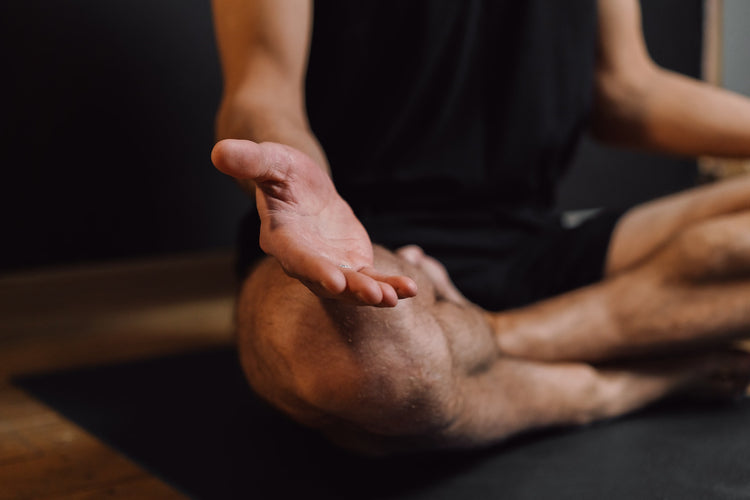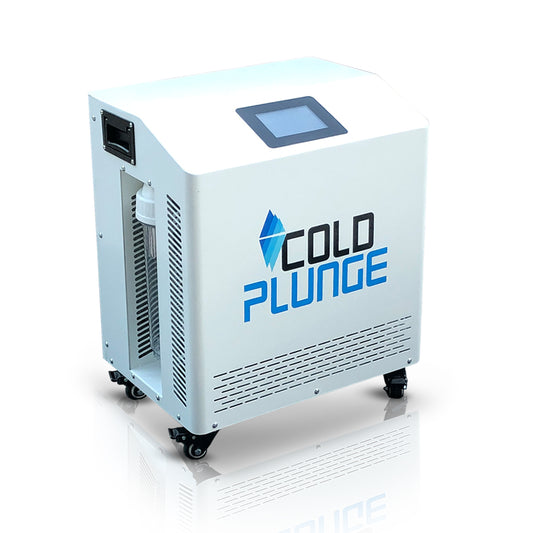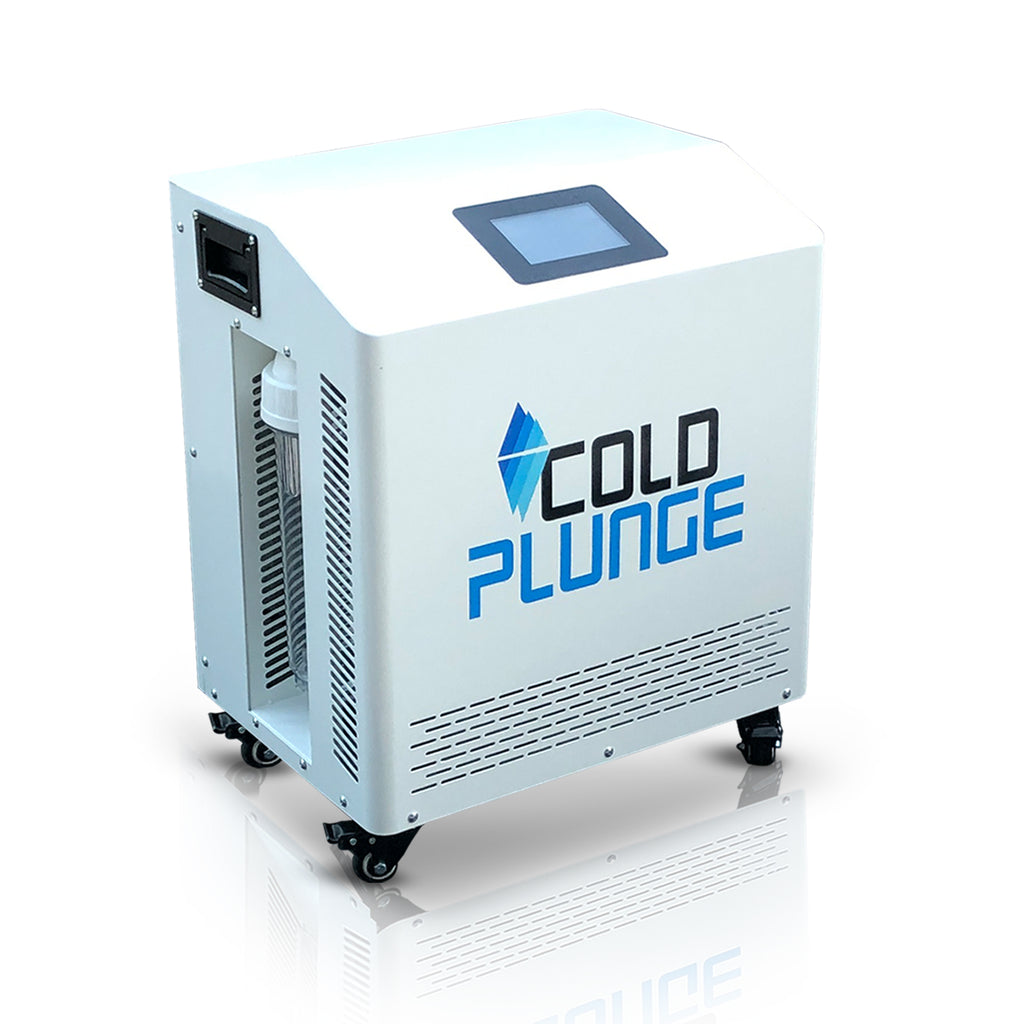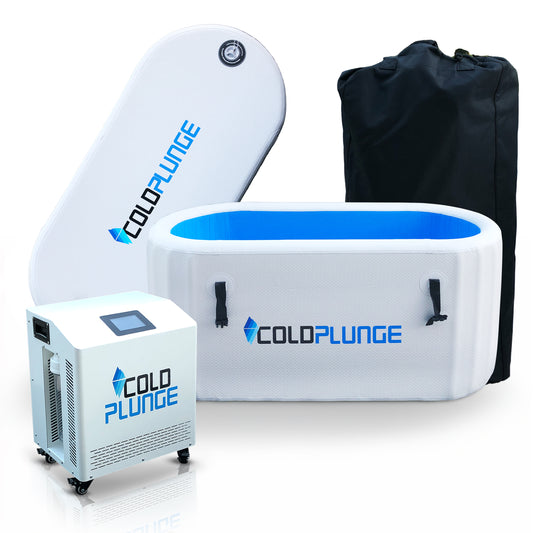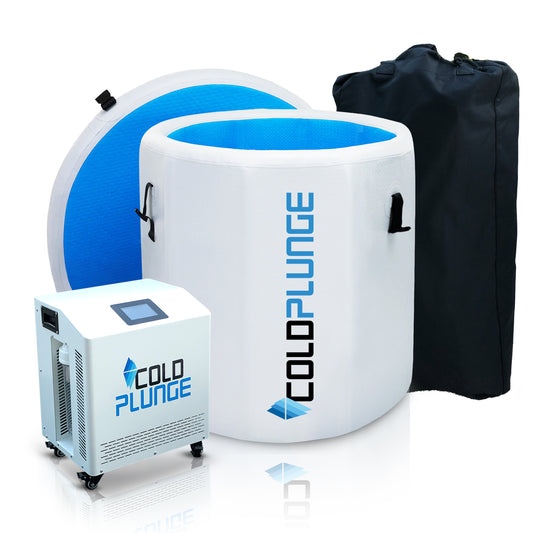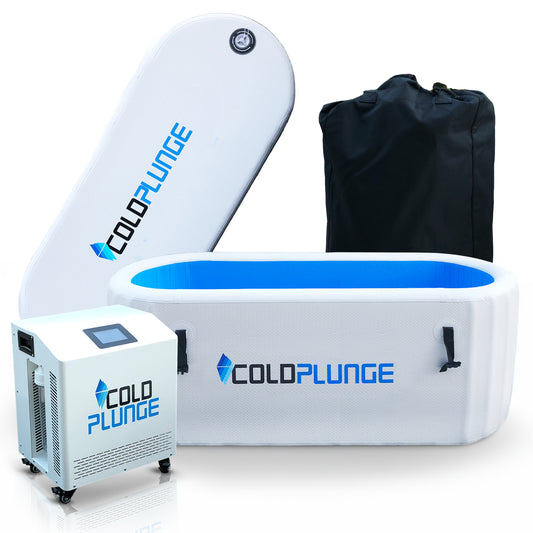Cold plunges, also known as cold water immersion or cold baths, can enhance physical recovery for athletes and individuals engaged in strenuous physical activities. The benefits of cold plunges on physical recovery are multifaceted and can help the body recover faster and more effectively after exercise or intense physical exertion. Here's how cold plunges can enhance physical recovery:
-
Reduction in Muscle Soreness: Cold water immersion is effective in reducing delayed onset muscle soreness (DOMS) after intense exercise. The cold temperature helps constrict blood vessels, limiting the release of inflammatory substances and reducing muscle inflammation and soreness.
-
Decreased Muscle Fatigue: Cold water immersion aids in the removal of waste products, such as lactic acid, from muscles. This helps reduce muscle fatigue and allows for faster recovery between workouts.
-
Improved Circulation: After exiting the cold water, the body's natural response is to warm up rapidly, leading to increased blood flow. This enhanced circulation delivers oxygen and nutrients to muscle tissues, facilitating the repair and recovery process.
-
Reduced Swelling and Inflammation: Cold water immersion can help reduce post-exercise swelling and inflammation, which can speed up the healing process and minimize tissue damage.
-
Vasoconstriction and Vasodilation: The alternating cycles of vasoconstriction (narrowing of blood vessels) and vasodilation (widening of blood vessels) caused by cold plunges can help "pump" metabolic waste products out of muscles and draw fresh blood in, promoting recovery.
-
Pain Relief: Cold water immersion acts as a natural analgesic, numbing pain receptors in the muscles and providing temporary relief from muscle soreness and discomfort.
-
Enhanced Sleep Quality: The relaxation effect of cold water immersion and the release of endorphins can lead to improved sleep quality. Adequate rest is vital for physical recovery.
-
Reduction in Microtrauma: Cold water immersion may reduce the risk of microtrauma (small injuries) to muscle fibers that can occur during intense workouts. By minimizing these micro-injuries, athletes may be less prone to overuse injuries.
-
Increased Mental Resilience: Cold plunges can help build mental toughness and resilience by training individuals to adapt to uncomfortable situations. This can lead to a more positive mindset and improved coping skills during physical challenges.
-
Enhanced Athletic Performance: Athletes who incorporate cold water immersion into their recovery routines may experience improved physical performance and endurance in subsequent training sessions or competitions.
-
Injury Prevention: Cold plunges may help prevent injuries by reducing the risk of overuse injuries and minimizing the likelihood of injury-related compensation patterns.
-
Improved Immune Function: Cold exposure can stimulate the production of white blood cells and enhance immune function, potentially reducing the risk of illness and aiding in recovery.
It's essential to note that the duration and frequency of cold plunges should be tailored to individual tolerance levels and goals. Beginners should start with shorter sessions and gradually increase exposure. Additionally, consulting with a healthcare professional or sports medicine expert is advisable, especially if you have underlying medical conditions or concerns about cold water immersion. Cold plunges should be just one component of a comprehensive recovery plan that includes proper nutrition, hydration, stretching, and rest.
As always, please refer to our disclaimer.

